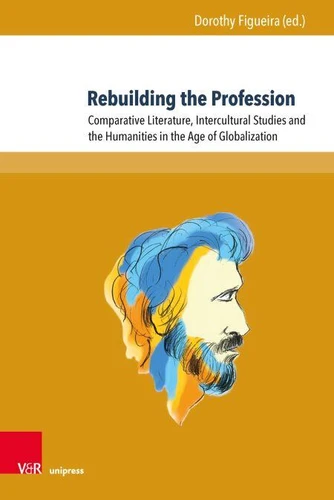Rebuilding the Profession. Comparative Literature, Intercultural Studies and the Humanities in the Age of Globalization. Essays in Honor of Mihai I. Spariosu
Par : , , , ,Formats :
Disponible dans votre compte client Decitre ou Furet du Nord dès validation de votre commande. Le format PDF est :
- Compatible avec une lecture sur My Vivlio (smartphone, tablette, ordinateur)
- Compatible avec une lecture sur liseuses Vivlio
- Pour les liseuses autres que Vivlio, vous devez utiliser le logiciel Adobe Digital Edition. Non compatible avec la lecture sur les liseuses Kindle, Remarkable et Sony
 , qui est-ce ?
, qui est-ce ?Notre partenaire de plateforme de lecture numérique où vous retrouverez l'ensemble de vos ebooks gratuitement
Pour en savoir plus sur nos ebooks, consultez notre aide en ligne ici
- Nombre de pages239
- FormatPDF
- ISBN978-3-8470-1093-7
- EAN9783847010937
- Date de parution20/01/2020
- Protection num.pas de protection
- Taille3 Mo
- Infos supplémentairespdf
- ÉditeurV&R Unipress
Résumé
This volume is meant to be a retrospective look at the field of Comparative Literature as it has developed in the past two decades, as well as a reflection on its future direction if it is to remain relevant (and innovative) as a field of study. From its inception in the second half of the twentieth century, Comparative Literature in the US has been conceived as a cross-disciplinary, cross-national, and crosscultural enterprise that brings together theoretical developments in the Humanities and Social Sciences to reflect on the most important intellectual and cultural trends from a comparative perspective through the lens of literary studies.
Most of the founders of Comparative Literature were distinguished European scholars who sought a safe haven from the ravages of World War II and its aftermath and who, understandably focused on the Western literary, intellectual and cultural tradition, which at the time was in danger of being annihilated by the onslaught of Fascism and Communism. With the advent of the age of globalization the field of Comparative Literature has become increasingly diverse and must, therefore, be reoriented and recognized accordingly.
Most of the founders of Comparative Literature were distinguished European scholars who sought a safe haven from the ravages of World War II and its aftermath and who, understandably focused on the Western literary, intellectual and cultural tradition, which at the time was in danger of being annihilated by the onslaught of Fascism and Communism. With the advent of the age of globalization the field of Comparative Literature has become increasingly diverse and must, therefore, be reoriented and recognized accordingly.
This volume is meant to be a retrospective look at the field of Comparative Literature as it has developed in the past two decades, as well as a reflection on its future direction if it is to remain relevant (and innovative) as a field of study. From its inception in the second half of the twentieth century, Comparative Literature in the US has been conceived as a cross-disciplinary, cross-national, and crosscultural enterprise that brings together theoretical developments in the Humanities and Social Sciences to reflect on the most important intellectual and cultural trends from a comparative perspective through the lens of literary studies.
Most of the founders of Comparative Literature were distinguished European scholars who sought a safe haven from the ravages of World War II and its aftermath and who, understandably focused on the Western literary, intellectual and cultural tradition, which at the time was in danger of being annihilated by the onslaught of Fascism and Communism. With the advent of the age of globalization the field of Comparative Literature has become increasingly diverse and must, therefore, be reoriented and recognized accordingly.
Most of the founders of Comparative Literature were distinguished European scholars who sought a safe haven from the ravages of World War II and its aftermath and who, understandably focused on the Western literary, intellectual and cultural tradition, which at the time was in danger of being annihilated by the onslaught of Fascism and Communism. With the advent of the age of globalization the field of Comparative Literature has become increasingly diverse and must, therefore, be reoriented and recognized accordingly.



